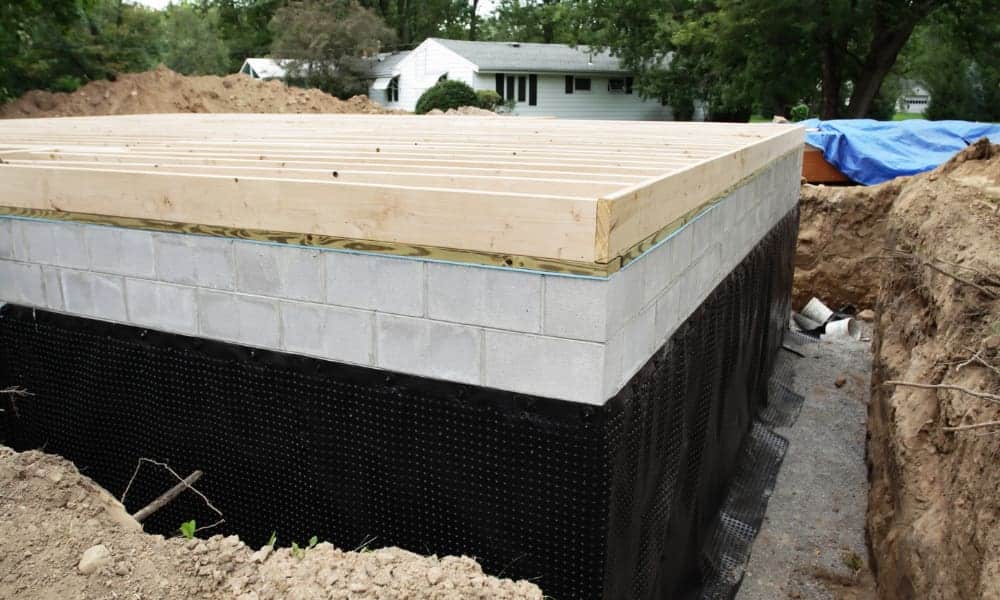Few sights are more anxiety-provoking to a homeowner than standing water in the basement. At best, a flooded basement means an afternoon spent drying things out. At worst, it can be a symptom of extensive property damage requiring extensive repairs.
To make things even more stressful, it can be difficult to tell which scenario awaits you without calling a professional.
Although watching water seep into your basement can make you feel powerless, there are steps you can take to protect your property. This guide will tell you everything you need to know about a leaking basement, including how to identify and prevent leaks, as well as what you need to do to have a healthy basement.
What Causes a Basement Leak?
Leaks happen when water from the soil penetrates a weak point in the basement’s structure. Due to their position in the soil, basement walls and floors are subject to hydrostatic pressure from water in the soil. Environmental factors such as heavy rainfall can saturate the soil more than usual, increasing hydrostatic pressure until water can force its way through a weak point in the foundation.
These weak points include:
- Cracks in the floor, wall, or foundation
- Joints where the basement’s floor meets its foundation
- Windows and window wells, especially when improperly installed
- Entry points where pipes enter the basement
- Mortar joints between bricks or concrete slabs

Note that many of these vulnerable spots are normal parts of a basement’s construction. This means that even a properly-built, well-sealed space can leak if it lacks sufficient drainage. Basements cannot leak without a buildup of water pressure, but the excess moisture can come from many sources:
- Heavy rainfall
- Melting snow
- Improperly draining gutters or downspouts
- Leaking plumbing
In all of these cases, the soil becomes saturated with extra water. With nowhere else to go, this water pushes through any cracks or gaps it can find, causing a leak.
How to Identify Basement Water Damage
Identifying a leak is often as simple as noticing strange puddles or standing water in your basement, but sometimes you will need to rely on less obvious signs. If you notice any of the following, you would likely benefit from a professional consultation before the problem gets worse:
- Persistent musty odors in the basement
- Stains on walls
- Warped wood
- Uncontrollable humidity or condensation
These indications suggest that water is entering the basement by one means or another. If left unchecked, your property may be at risk of costly structural damage, mold growth, or destructive flooding.
What to Do About Basement Leaks and Floods
When you first notice signs of a basement leak or flood, you should attempt to identify the source of the water, if possible. Some damage comes from internal issues such as faulty plumbing, and it’s important to rule these out before they worsen. If there is no apparent source for the leak, then the water is likely coming from outside.
At this stage, it’s important to take the following steps:
- Remove standing water promptly to prevent additional damage or mold growth. Mold can take root in as little as 24 hours, so act quickly.
- Use fans to dry the area to the best of your ability, especially if carpet has been affected. Keep as much air flowing through the room as possible. Proper ventilation speeds the drying process and helps prevent mold.
- If a crack is very obvious, you may apply sealant to prevent more water from infiltrating the basement. Continue to monitor the situation closely even if you think you’ve identified the source of the leak, however. Water often comes from multiple sources, making it difficult to seal without professional assistance.
- Contact a professional waterproofing company to address the cause.
You might be tempted to handle a minor leak by yourself, but it’s important to consult a professional as soon as you notice abnormal water entering the home. Even a minor leak can cause undetected water damage to your insulation, carpets, and even structural supports. More pressingly, a minor leak tells you there is a weak point in the foundation or walls that could quickly become a major leak if unaddressed.
How Basement Waterproofing Professionals Treat Basement Leaks
A professional will analyze your property to determine the most likely source of your problems. If there is water present when they arrive, they’ll work with sump pumps and other industrial equipment to efficiently remove it before it can penetrate more deeply into the home. They will then recommend a waterproofing solution tailored specifically to your home’s construction and geography.
Some elements and methods of basement waterproofing and drainage systems might include:
- Interior waterproofing, such as applying sealants to cracks in the walls.
- Exterior waterproofing, which includes applying protective membranes to the outer walls of the basement’s foundation.
- Improving drainage by adding or rerouting gutters, French drains, or similar fixtures. In some cases, simple gutter extensions are all that’s needed to address a serious drainage problem.
- Regrading, to route water away from the foundation. By altering the slope of the surrounding soil, regrading helps decrease pressure and prevent cracks or leaks. It also improves the performance of other drainage options.
- Installation of a permanent sump pump is sometimes necessary if leaks and floods are severe or recurrent.

An effective waterproofing job usually involves a combination of techniques designed to address the immediate concern while also preventing the problem from recurring. As such, your contractors will likely examine both the interior and exterior of your basement and may even dig to expose the foundation.
Repair Leaking Basement Walls in Northern VA
If you notice any signs of water in your basement, contact LUX Foundation Solutions as soon as possible for help. Our experts work quickly to find and eliminate leaks while also establishing durable basement waterproofing solutions to protect your home in Northern Virginia.
